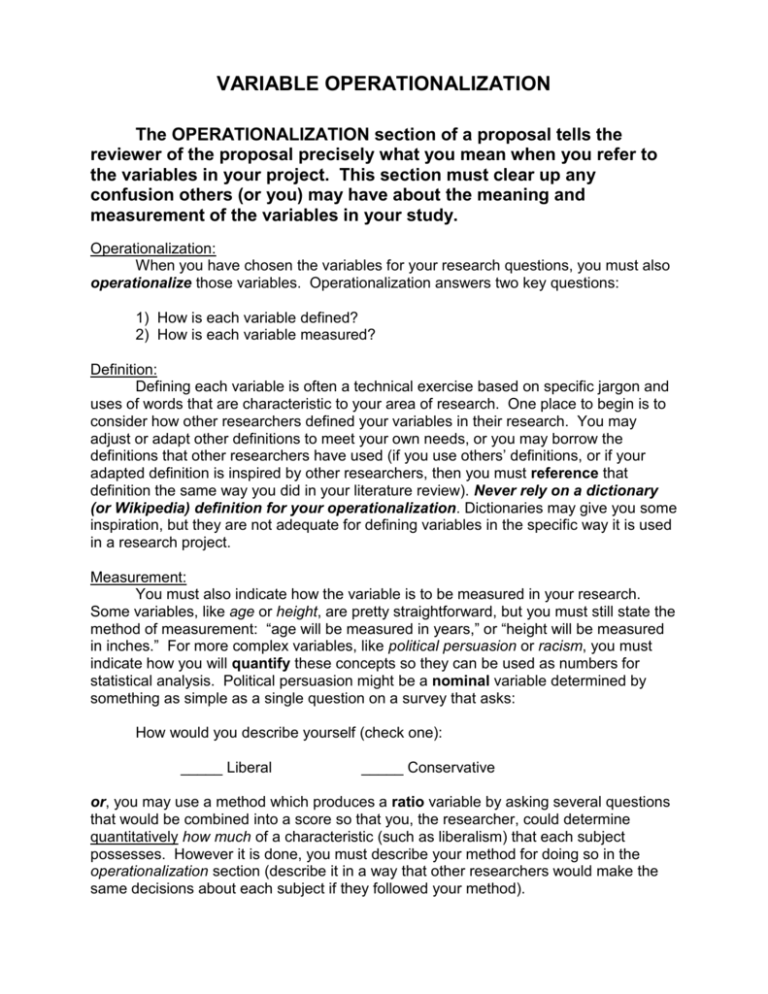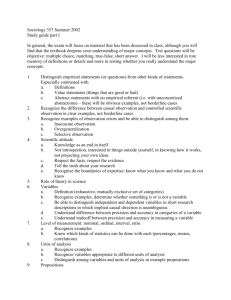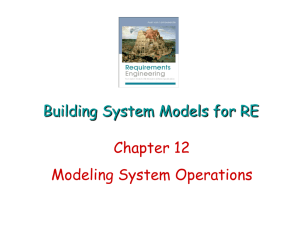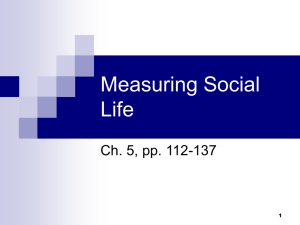VARIABLE OPERATIONALIZATION
advertisement

VARIABLE OPERATIONALIZATION The OPERATIONALIZATION section of a proposal tells the reviewer of the proposal precisely what you mean when you refer to the variables in your project. This section must clear up any confusion others (or you) may have about the meaning and measurement of the variables in your study. Operationalization: When you have chosen the variables for your research questions, you must also operationalize those variables. Operationalization answers two key questions: 1) How is each variable defined? 2) How is each variable measured? Definition: Defining each variable is often a technical exercise based on specific jargon and uses of words that are characteristic to your area of research. One place to begin is to consider how other researchers defined your variables in their research. You may adjust or adapt other definitions to meet your own needs, or you may borrow the definitions that other researchers have used (if you use others’ definitions, or if your adapted definition is inspired by other researchers, then you must reference that definition the same way you did in your literature review). Never rely on a dictionary (or Wikipedia) definition for your operationalization. Dictionaries may give you some inspiration, but they are not adequate for defining variables in the specific way it is used in a research project. Measurement: You must also indicate how the variable is to be measured in your research. Some variables, like age or height, are pretty straightforward, but you must still state the method of measurement: “age will be measured in years,” or “height will be measured in inches.” For more complex variables, like political persuasion or racism, you must indicate how you will quantify these concepts so they can be used as numbers for statistical analysis. Political persuasion might be a nominal variable determined by something as simple as a single question on a survey that asks: How would you describe yourself (check one): _____ Liberal _____ Conservative or, you may use a method which produces a ratio variable by asking several questions that would be combined into a score so that you, the researcher, could determine quantitatively how much of a characteristic (such as liberalism) that each subject possesses. However it is done, you must describe your method for doing so in the operationalization section (describe it in a way that other researchers would make the same decisions about each subject if they followed your method).











